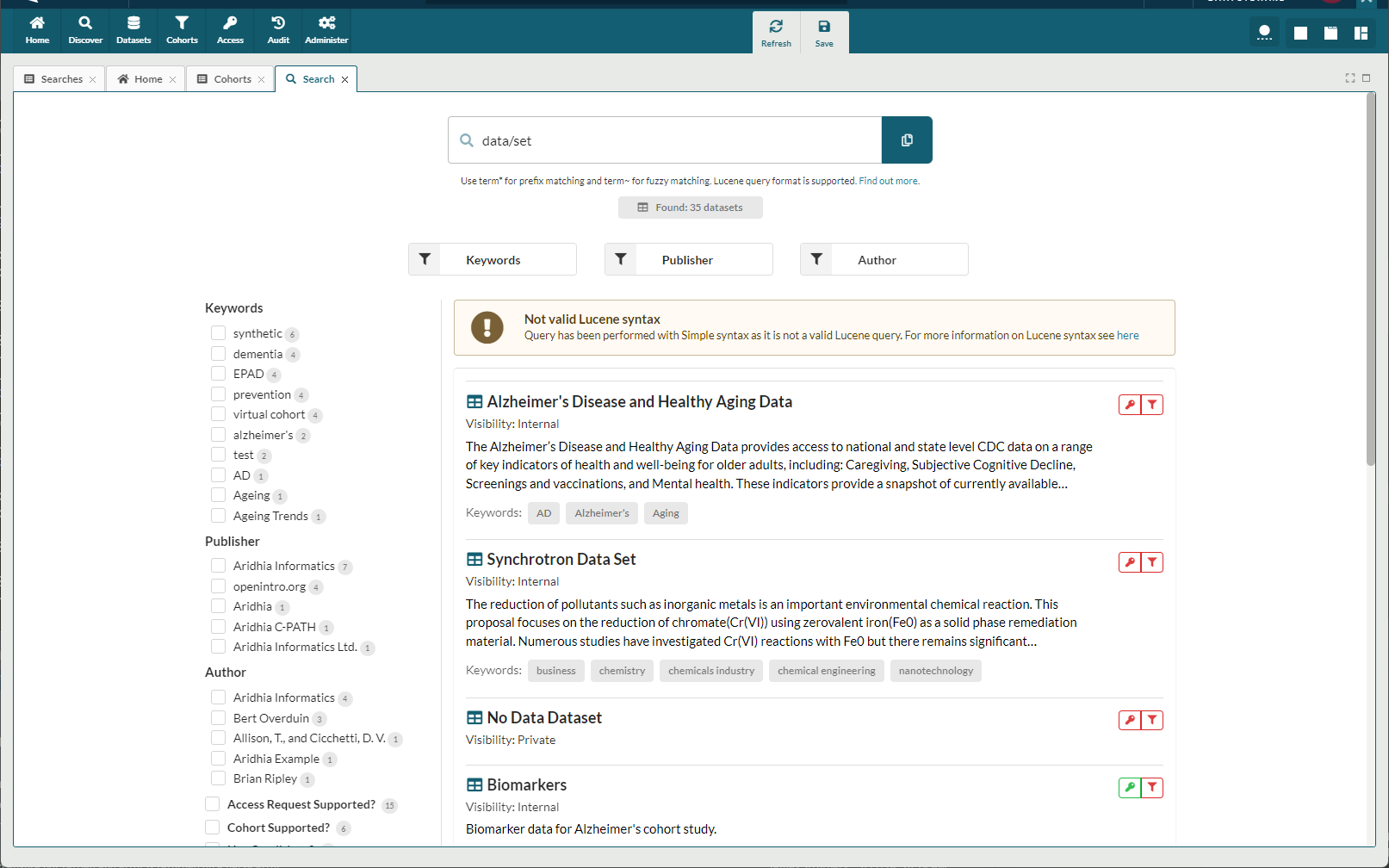Searching for Data
FAIR Search
FAIR search allows users to search and filter on all datasets they have visibility of.

Basic Search
By default all available datasets are displayed, and users can search the FAIR catalogue using the free type search box, the filters at the top of the page, or the facets on the left hand side.
Both the filters and facets are configurable, and can be updated by administrative users. Details on how to do this can be found here.
Users can also save and share their searches.
Sharing searches
The copy button on the right of the search box allows users to copy the search URL, which can then be shared with other users.
When a search is shared like this with another user it will only return results that they have permission to view.
Saving searches
To save a search user should use the Save option at the top of the search tab.

Users can access their saved searches from the My searches option in the Discover menu.

Advanced Search
FAIR search supports Lucene Query Syntax, which allows users to create advanced searches, the most common of these are detailed below:
| Search Type | Special Character Used | Example Search | Result |
|---|---|---|---|
| Boolean AND | NA | red AND car | Returns results which contain both 'red' and 'car' |
| Boolean NOT | NA | red NOT car | Returns results which contain 'red' but not 'car' |
| Boolean OR | NA | red OR car | Returns results which contain 'red', 'car' or both. Searches are OR by default, therefore the user doesn't need to enter the OR operator |
| Exact match | " | "red car" | Returns results which contain the exact phrase 'red car' |
| Single character wildcard | ? | red ca? | Returns results which contain both 'red' and any match for the single character wildcard e.g. 'car' 'cat' 'cap' etc |
| Multi character wildcard | * | red ca* | Returns results which contain both 'red' and any match for the multi character wildcard e.g 'car' 'camp' 'carrot' |
| Fuzzy search | ~ | red car~ | Returns results which contain both 'red' and fuzzy matches for 'car' e.g. 'bar' 'far' 'can' 'cat' |
More examples and further detail on lucene search syntax can be found here.
Use of special characters
As described above, lucene syntax uses a variety of special characters to support advanced searches, these include the following:
+ - & | ! ( ) { } [ ] ^ " ~ * ? : \ /
If a user wants to include these in a search as a regular character they need to be escaped using a single \.
For example if a user was searching for a date in the format 15/9, they would need to escape the / with \, submitting a query in the following format:
15\/9
Special characters will also be ignored if they are part of an exact match search using the ", eg:
"15/9"
This search will return any results which contain the exact phrase '15/9'
If a user submits an incorrectly formatted lucene search, FAIR search will return results based on simple syntax and inform the user that their search was incorrectly formatted:

